Philippines' 1st Property Portal
building for rent
84 properties found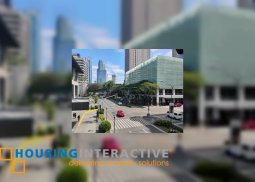 Updated Feb 04, 2026
Updated Feb 04, 2026
- Makati
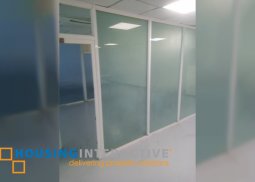 Updated Feb 04, 2026
Updated Feb 04, 2026
- Pasay
 Updated Oct 29, 2025
Updated Oct 29, 2025
- Taguig
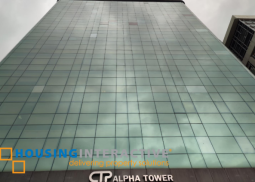 Updated Sep 17, 2025
Updated Sep 17, 2025
- Muntinlupa
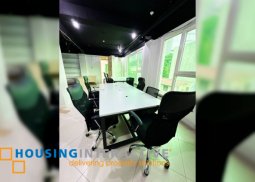 Updated Sep 16, 2025
Updated Sep 16, 2025
- Makati
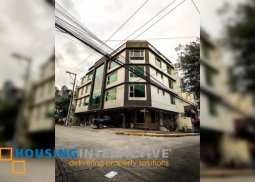 Updated Sep 15, 2025
Updated Sep 15, 2025
- Makati
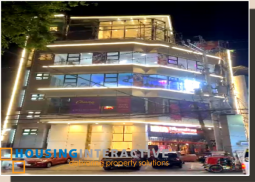 Updated Aug 26, 2025
Updated Aug 26, 2025
- Mandaluyong
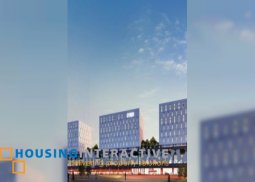 Updated Jun 23, 2025
Updated Jun 23, 2025
- 1
- Paranaque
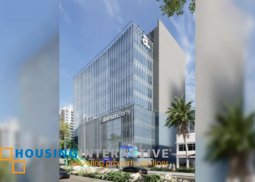 Updated Jun 23, 2025
Updated Jun 23, 2025
- Pasig
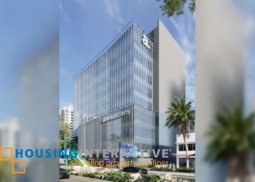 Updated Jun 23, 2025
Updated Jun 23, 2025
- Pasig
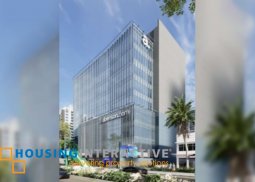 Updated Jun 23, 2025
Updated Jun 23, 2025
- Pasig
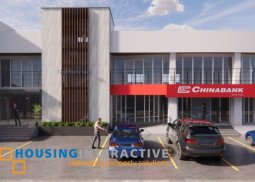 Updated May 26, 2025
Updated May 26, 2025
- 6
- Makati
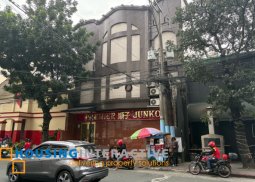 Updated May 22, 2025
Updated May 22, 2025
- Makati
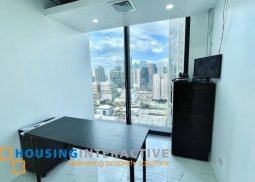 Updated May 15, 2025
Updated May 15, 2025
- Taguig
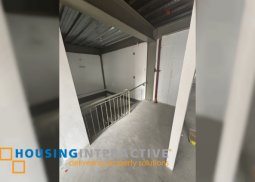 Updated Jan 27, 2025
Updated Jan 27, 2025
- Makati
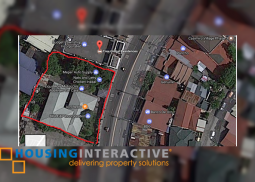 Updated Dec 06, 2024
Updated Dec 06, 2024
- Las Piñas City
Building Properties for Rent in the Philippines
A Strategic Move to Elevate Your Business Success
The Philippine building rental market has emerged as one of the most dynamic sectors in Southeast Asia, driven by rapid urbanization, economic recovery, and the expansion of business process outsourcing industries. Whether you’re a growing enterprise seeking strategic location access or an established company looking to optimize operational costs, understanding the landscape of building property rentals in the Philippines can significantly impact your business success.
The building rental market in the Philippines encompasses a diverse range of property types, each designed to cater to specific business needs and operational requirements. Understanding these options is crucial for making informed decisions that align with your company’s growth trajectory and budget constraints.
The Philippine building rental sector has experienced remarkable resilience and growth throughout 2024-2025. The market benefits from several key factors, including continued economic expansion, infrastructure development, and the government’s commitment to creating business-friendly environments. Companies across various industries are increasingly recognizing the strategic advantages of renting rather than purchasing building properties, particularly as operational flexibility becomes paramount in today’s dynamic business environment.
Current market trends indicate a strong preference for mixed-use developments that combine office, retail, and residential components. This approach allows businesses to access comprehensive amenities while maintaining proximity to their target market and key services. The resurgence of business process outsourcing companies, technology firms, and financial services has particularly driven demand in Metro Manila and major provincial cities.
The Philippine market offers four primary categories of building properties for rent, each serving distinct business purposes: Commercial Buildings, which are standalone structures or parts of larger complexes designed for retail, hospitality, and service industries, featuring ground-floor retail spaces, showrooms, and customer-facing facilities that maximize visibility and client engagement; Office Buildings, classified as Grade A, B, or C based on location quality, amenities, and management standards, with Grade A buildings providing premium locations, state-of-the-art facilities, and professional property management services to enhance company image and operational efficiency; Residential Buildings, including apartment complexes, condominiums, and dormitories that serve various business needs such as employee housing or corporate apartments for visiting executives and clients; and Mixed-Use Developments, which integrate multiple property types within a single complex, offering businesses access to office space, retail outlets, and residential units in one strategic location, often resulting in cost savings and improved operational synergies.
Why Businesses Choose Building Rentals in the Philippines?
The decision to rent rather than purchase building properties reflects strategic business considerations that extend far beyond simple cost comparisons. Companies across various industries consistently find that rental arrangements provide operational advantages that support business growth, financial flexibility, and strategic positioning.
Cost-Effective Business Operations
Building rentals offer substantial financial advantages that enable businesses to optimize their capital allocation and cash flow management. The elimination of large upfront investments allows companies to direct resources toward revenue-generating activities, equipment purchases, and market expansion initiatives.
Lower Upfront Capital Requirements Compared to Purchasing
Property acquisition in prime business locations requires substantial initial investments that can strain business finances and limit operational flexibility. Building purchases typically involve down payments ranging from 20% to 30% of total property value, plus additional costs for legal fees, taxes, and property registration.
Rental arrangements eliminate these significant upfront costs, requiring only security deposits and advance payments that typically total two to three months of rent. This approach preserves working capital for business operations while providing immediate access to professional facilities in strategic locations.
The capital preservation benefits prove particularly valuable for growing businesses that need flexibility to invest in equipment, inventory, marketing, and staff expansion. Companies can allocate resources more efficiently when they’re not committed to substantial property investments that may not align with evolving business needs.
Predictable Monthly Expenses for Better Cash Flow Management
Rental agreements provide predictable monthly expenses that simplify financial planning and budgeting processes. Unlike property ownership, which involves variable maintenance costs, property taxes, insurance premiums, and unexpected repair expenses, rental payments remain consistent throughout lease terms.
This predictability enables more accurate financial forecasting and helps businesses maintain stable cash flow projections. Companies can budget more effectively when facility costs remain constant, allowing for better resource allocation across other business functions and operational requirements.
Many rental agreements include specific provisions limiting annual rent increases, providing additional cost predictability over multiple years. This stability proves particularly valuable for businesses operating on tight margins or those requiring consistent expense structures for investor reporting and financial planning purposes.
Strategic Location Access
Location significantly impacts business success, influencing customer accessibility, employee recruitment, supplier relationships, and overall market perception. Rental arrangements enable businesses to secure premium locations that might otherwise be financially prohibitive through property purchase.
Prime Business Addresses Without Huge Investment
Establishing operations in prestigious business districts provides numerous advantages, including enhanced credibility, improved client perception, and access to professional networks. However, purchasing property in these locations requires substantial capital investments that may exceed many businesses’ financial capabilities.
Rental arrangements make prime business addresses accessible to companies of all sizes, enabling small and medium enterprises to compete with larger corporations for market presence and professional image. A prestigious business address can significantly impact client relationships, partnership opportunities, and overall market positioning.
The ability to establish operations in prime locations without major capital commitments proves particularly valuable for international companies entering the Philippine market. These businesses can test market conditions and establish local presence without making irreversible property investments.
Access to Established Infrastructure and Transportation Networks
Prime business locations offer comprehensive infrastructure including reliable utilities, high-speed internet connectivity, efficient transportation networks, and proximity to essential business services. These advantages support operational efficiency while reducing the time and cost required to establish business operations.
Building rentals in established business districts provide immediate access to these infrastructure advantages without requiring businesses to invest in developing or upgrading facilities. Companies can focus on their core business activities while benefiting from professional property management and established utility systems.
Transportation accessibility proves particularly important for employee recruitment and client meetings. Properties located near public transportation networks, airports, and major highways provide convenience that supports business operations while reducing transportation costs and time for staff and visitors.
Flexibility and Scalability
Business needs evolve continuously, requiring facility solutions that can adapt to changing operational requirements, market conditions, and growth trajectories. Rental arrangements provide the flexibility necessary to accommodate these changes without the constraints associated with property ownership.
Easy Relocation or Expansion as Business Needs Change
Companies experiencing rapid growth or changing market focus benefit from the ability to relocate or expand their facilities without the complexity and costs associated with property sales and purchases. Rental agreements typically include provisions for lease modifications, subleasing, or relocation that support business evolution.
This flexibility proves particularly valuable for businesses operating in dynamic industries where market conditions, technology requirements, or regulatory environments change frequently. Companies can adapt their facility needs without being constrained by property ownership obligations that may no longer align with operational requirements.
Businesses entering new markets or testing different operational models appreciate the ability to establish temporary or trial operations without long-term property commitments. This approach reduces risk while providing opportunities to evaluate market potential before making substantial investments.
Short to Long-Term Lease Options Available
The Philippine building rental market offers lease terms ranging from short-term arrangements of six months to long-term agreements extending 10 years or more. This flexibility enables businesses to select lease structures that align with their operational timelines and strategic planning horizons.
Short-term leases prove valuable for project-based operations, seasonal businesses, or companies requiring temporary facilities during transition periods. These arrangements provide operational space without long-term commitments that might not align with business lifecycles.
Long-term leases offer stability and often include favorable rate structures that reward tenant commitment. Companies with established operations and predictable facility needs can benefit from extended lease terms that provide cost certainty and operational continuity.
Top Locations for Building Properties in the Philippines
Location selection significantly impacts business success, influencing everything from operational costs to market reach. The Philippines offers numerous strategic locations, each with unique advantages for different types of businesses and target markets.
The country’s building rental landscape is characterized by established business hubs in Metro Manila and rapidly developing provincial centers that offer compelling alternatives for companies seeking to optimize their operational footprint while maintaining access to essential business services.
Metro Manila Business Districts
Metro Manila remains the epicenter of Philippine business activity, hosting the majority of multinational corporations, financial institutions, and professional services firms. The region’s business districts offer unparalleled access to infrastructure, a skilled workforce, and a comprehensive business ecosystem.
Makati CBD
Makati Central Business District stands as the Philippines’ premier financial and business center, home to the country’s largest banks, multinational corporations, and professional services firms. The area offers the highest concentration of Grade A office buildings, premium retail establishments, and luxury hotels, making it an ideal location for companies requiring prestige addresses and access to high-level business networks.
The district’s building properties command premium rental rates, typically ranging from ₱1,000 to ₱30,000 per square meter per month for Grade A office spaces. However, this investment provides access to world-class amenities, excellent public transportation connectivity, and proximity to government offices, embassies, and major financial institutions.
Companies operating in Makati benefit from the district’s reputation for professionalism and reliability, factors that prove crucial when building relationships with international clients and partners. The area’s extensive dining, shopping, and entertainment options also contribute to employee satisfaction and talent retention.
Bonifacio Global City
Fort Bonifacio Global City represents the Philippines’ most modern business district, featuring contemporary architecture, comprehensive urban planning, and integrated mixed-use developments. The area attracts technology companies, creative agencies, and forward-thinking enterprises that value innovation and modern work environments.
BGC’s building properties offer state-of-the-art facilities, sustainable design features, and flexible workspace configurations that accommodate evolving business needs. Rental rates typically range from ₱900 to ₱1,500 per square meter per month, reflecting the premium associated with modern amenities and strategic location.
The district’s appeal extends beyond office spaces, with numerous residential towers, retail centers, and recreational facilities creating a comprehensive live-work-play environment. This integration proves particularly attractive to companies seeking to attract and retain young professionals who appreciate urban convenience and lifestyle amenities.
Ortigas Center
Ortigas Center provides a compelling balance between prestige and affordability, offering established business infrastructure at more competitive rates than Makati or BGC. The district houses numerous multinational corporations, telecommunications companies, and regional headquarters, creating a diverse business community.
Building properties in Ortigas typically rent for ₱600 to ₱2,500 per square meter per month, making it an attractive option for small and medium enterprises seeking professional addresses without premium pricing. The area’s excellent public transportation access, including multiple MRT and bus routes, ensures convenient connectivity for employees and clients.
The district’s mature business ecosystem includes comprehensive banking services, professional support services, and extensive dining and retail options. This established infrastructure reduces the time and effort required to establish business operations while providing access to essential services.
Quezon City
Quezon City offers the largest geographic area and most diverse property portfolio within Metro Manila, accommodating businesses ranging from small startups to major broadcasting and technology companies. The city’s building properties span multiple price points and property types, providing options for virtually any business requirement.
Rental rates in Quezon City vary significantly based on specific location and building quality, generally ranging from ₱400 to ₱1,100 per square meter per month. This diversity allows businesses to find properties that match their budget constraints while maintaining access to Metro Manila’s business ecosystem.
The city’s strategic location provides easy access to other business districts while offering more affordable operational costs. Many companies choose Quezon City for back-office operations, research and development facilities, and customer service centers that benefit from lower overhead costs without sacrificing accessibility.
Key Provincial Cities
Provincial cities offer compelling alternatives to Metro Manila, providing access to growing markets, skilled workforces, and government incentives while significantly reducing operational costs. These locations prove particularly attractive for companies seeking to establish regional operations or access specific industry clusters.
Cebu City
Cebu City has established itself as the premier business destination outside Metro Manila, attracting numerous business process outsourcing companies, technology firms, and regional headquarters. The city’s strategic location, cultural familiarity with Western business practices, and strong educational institutions create an ideal environment for various business operations.
Building properties in Cebu typically rent for ₱550 to ₱850 per square meter per month for Grade A office spaces, representing significant cost savings compared to Metro Manila while maintaining professional standards. The city’s IT Park and Business Park developments offer modern facilities specifically designed for technology and service companies.
Cebu’s appeal extends beyond cost considerations, with the city offering an excellent quality of life, international airport connectivity, and access to skilled English-speaking professionals. These factors make it particularly attractive for companies serving international markets or requiring high-quality customer service capabilities.
Davao City
Davao City represents the largest business center in Mindanao, offering access to the island’s growing economy and emerging consumer markets. The city has gained recognition for its peace and order, efficient local government, and business-friendly policies that support enterprise growth and development.
Office building rentals in Davao typically range from ₱400 to ₱700 per square meter per month, providing excellent value for companies seeking to establish operations in Mindanao. The city’s modern infrastructure, including an international airport and comprehensive telecommunications networks, supports various business operations.
Companies operating in Davao benefit from the city’s strategic location for accessing Mindanao’s agricultural, mining, and tourism sectors. The area’s lower operational costs and supportive local government make it particularly attractive for businesses requiring cost-effective regional operations.
Iloilo City
Iloilo City has emerged as a significant business destination, supported by substantial infrastructure investments and government initiatives designed to attract investment. The city’s modern business districts, educational institutions, and cultural amenities create an attractive environment for various business operations.
Building rental rates in Iloilo typically range from ₱450 to ₱700 per square meter per month, offering excellent value for companies seeking professional facilities at competitive prices. The city’s recent infrastructure developments, including new roads, airports, and business centers, support continued economic growth and business expansion.
Iloilo’s appeal lies in its combination of modern business facilities and traditional Filipino culture, creating a unique environment that attracts both local and international companies. The city’s focus on sustainable development and smart city initiatives also appeals to forward-thinking enterprises.
Clark, Pampanga
Clark Pampanga offers unique advantages due to its special economic zone status, proximity to Clark International Airport, and modern infrastructure designed to support international business operations. The area attracts logistics companies, manufacturing firms, and service providers requiring easy access to air transportation.
Office rental rates in Clark typically range from ₱500 to ₱700 per square meter per month, providing competitive pricing for modern facilities within a special economic zone. Companies operating in Clark benefit from various tax incentives and streamlined business processes designed to support international operations.
The area’s strategic location provides easy access to both Metro Manila and provincial markets, making it attractive for companies requiring regional coverage. Clark’s modern infrastructure and international business environment also appeal to multinational corporations seeking cost-effective Philippine operations.
Frequently Asked Questions About Building Rentals in the Philippines
Understanding common questions and concerns about building rentals helps businesses make informed decisions while avoiding potential pitfalls that could impact operational success or financial performance.
How to get to the Philippines?
To get to the Philippines, most international travelers fly into Ninoy Aquino International Airport (NAIA) in Manila, the country’s main international gateway, or Mactan-Cebu International Airport (MCIA) in Cebu. Major airlines from Asia, the Middle East, Europe, and North America operate regular flights to these hubs. Visitors typically require a valid passport and, depending on their nationality, may need a visa or may be granted visa-free entry for a limited period. From the airport, local transportation such as taxis, ride-hailing apps, buses, or domestic flights can connect you to other regions and islands across the country.
What are the typical rental rates for buildings in major Philippine cities?
Rental rates vary significantly based on location, building quality, property type, and specific amenities offered. Metro Manila commands premium rates due to its concentration of business activity, infrastructure quality, and market demand, while provincial cities offer more competitive pricing with varying levels of amenities and services.
Understanding rental rates across different locations helps businesses make informed decisions about where to establish their operations. Metro Manila continues to command premium rates due to its concentration of business activities, infrastructure, and skilled workforce.
In Metro Manila’s premier business districts, Grade A office spaces typically range from ₱950 to ₱1,300 per square meter per month. Makati CBD and Bonifacio Global City represent the upper end of this range, while Ortigas Center and Quezon City offer more competitive rates without sacrificing accessibility or professional amenities.
Provincial cities present compelling alternatives for businesses seeking cost-effective solutions while maintaining access to quality infrastructure and services. Cebu City offers Grade A office spaces at ₱550 to ₱850 per square meter per month, while Davao City and Iloilo City provide even more affordable options at ₱400 to ₱700 per square meter per month.
These rates reflect current market conditions and may vary based on specific building amenities, lease terms, and negotiation outcomes. Businesses should budget for additional costs, including association dues, utilities, parking, and security deposits when evaluating total occupancy expenses.
Is the Philippines safe to rent building properties?
Yes, the Philippines is generally safe for renting building properties, especially in major urban areas like Metro Manila, Cebu, and Davao, where real estate markets are well-regulated and supported by licensed brokers and developers. The government, through agencies like the Professional Regulation Commission (PRC) and the Housing and Land Use Regulatory Board (HLURB), enforces laws to protect both property owners and renters. However, like in any country, it's important to work with licensed real estate professionals, review contracts carefully, and verify the legitimacy of the property to avoid scams or legal issues. Partnering with a reputable real estate brokerage like HousingInteractive ensures a smooth and hassle-free renting journey.
How much is a building for rent?
In total, there are 84 building for rent. The average price for a commercial property for rent in this location is ₱25,399 per month. The most expensive rental for a commercial property here costs about ₱350,000 while the most affordable rental price is about ₱1,000.
You may find the most expensive and luxurious building for rent at Makati. While you can find classy yet affordable ones at Paranaque, Manila and Las Piñas City.
Below are the average rental prices according to the property conditions in this location.
| Property Conditions | Average Floor Area/SQM | Average Rental Price |
|---|---|---|
| Fully Furnished | 50sqm | ₱1,000 |
| Bare shell | 1,180sqm | ₱23,528 |
These properties are fully equipped with the following amenities and unit features:
- 24 Hour Aircon
- 24 Hour Security
- Bare-shell
- Brand New
- Cafeteria / Food Court
- Centralized Aircon
- Concierge
- Elevators
- Executive Restroom
- Front Desk
- Function Room
- Gym
- Gymnasium
- Helipad
- Housekeeping
- Meeting Room
- Pantry
- Parking Space
- Pet Friendly
- PEZA Accredited
- POGO
- Restaurants
- Retail Shop
- Spa
- Transport Service
- With Improvements